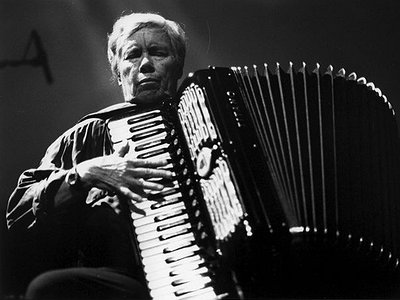When did you start composing - and what or who were your early passions and influences?
When I was 16 years old I wanted to compose. My inner listening was full with sounds and strange passages of music. I was influenced by what I heard on the radio and juke box - everything from country music to symphonic music, jazz, dixieland and popular music.
What do you personally consider to be incisive moments in your work and/or career?
Incisive for me was hearing my early music performed by professional musicians, receiving awards for my compositions, improvising with other musicians, inventing my own way of making electronic music before synthesizers were available.
What are currently your main compositional challenges?
Challenges for me are moving beyond what I know how to do and learning how to do it.
What do you usually start with when composing?
What I start with to compose really depends on the nature of the composition - how I want it to sound. There is no usual start.
How do you see the relationship between timbre and composition?
Timbre is the carrier of melody.
What do improvisation and composition mean to you and what, to you, are their respective merits?
Improvisation is making music instantaneously without planning. Composition is constructing music. In improvisation you can’t change your mind in composition you can.
Do you feel it important that an audience is able to deduct the processes and ideas behind a work purely on the basis of the music? If so, how do you make them transparent?
Processes and ideas may be more or less transparent or important to audiences. There are multiple ways to experience music - sensuous, intellectual, intuitive and through feeling. How people experience music may be more important than the processes and ideas.
The relationship between music and other forms of art – painting, video art and cinema most importantly - has become increasingly important. How do you see this relationship yourself and in how far, do you feel, does music relate to other senses than hearing alone?
A true integration of audio and visual art forms can be very satisfying. In some instances visual components can support sound. More often sound is support for the visual especially in theater and cinema.
How would you define the term “interpretation”? How important is it for you to closely work together with the artists performing your work?
A score is a system of symbols whether of musical notes, graphics or language that need interpretation to be understood or performed. What can’t be notated is the performance practice. Performance practice has to be transmitted by the composer or through oral tradition.
The effect of a piece doesn't merely depend on the performance of the musicians, but also on the place it is performed at.
How do you see the relationship between location and sound? In how far do you feel the current system of concert halls is still the right one for your music – or for contemporary music in general?
The space for a performance is very important. Space is as important as instruments playing in the space. Music can sound dull, or brilliant according to the space and how the musicians listen to the space. I design my music for the space where it will be performed. Some concert halls really don’t work for some of my music.
The role of the composer has always been subject to change. What's your view on the (e.g. political/social/creative) tasks of composers today and how do you try to meet these goals in your work?
Composer’s can be harbingers of change. For example John Cage changed the world with 4’33” - his most well known piece better known as the “silent” piece. 4’33” opened up the importance of expanded listening. Today’s composers need to find ways of engaging new audiences in their music. In my own work I have proposed improvisation across abilities so that participation can include anyone who wants to play.
How, do you feel, could contemporary compositions reach the attention of a wider audience?
Allowing young children to improvise and compose their own music would help to create audiences for contemporary music.
Usually, it is considered that it is the job of the composer to win over an audience. But listening is also an active, rather than just a passive process. How do you see the role of the listener in the musical communication process?
Listening can be contagious. If the performer is listening, the audience members can be influenced to listen in a continuous feedback loop.
Music-sharing sites and -blogs as well as a flood of releases in general are presenting both listeners and artists with challenging questions. What's your view on the value of music today? In what way does the abundance of music change our perception of it?
Music is as valuable as ever. The measure is not necessarily commercial or monetary but how music is used.
Composers have traditionally found it hard to secure a living with their art. What are the financial realities you're living with and in which way, do you feel, could they be improved?
I make my living because I am a composer but not from my compositions. I perform and I teach. Only a small portion of my income is derived from compositional activity. More respect for composing and interest in commissioning composers could be an improvement.
Please recommend two artists to our readers which you feel deserve their attention.
Miya Masaoka
Shelley Burgon
To read and hear more from Pauline Oliveros visit www.paulineoliveros.us

